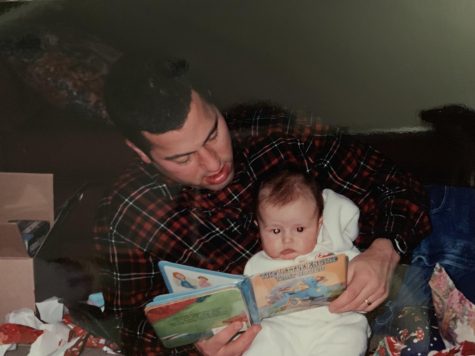Amazing grace
Channeling mercy in moments of change
January 4, 2022

I spent most of 2021 hoping for the best, but expecting the worst. Anxiety held an iron grip on every bone in my body. Physical exhaustion and mental fatigue became ever-present burdens. I was merely surviving rather than living, wandering aimlessly through life’s dark tunnel with no visible light at its end. The reason for all of this? Transitioning back to what some may refer to as ‘real life.’
I write this as an individual who struggles every day to sit still in her in-person classes. An individual who feels the claustrophobic walls of an elevator squeeze the breath from her lungs each time she rides in one. What were once casual day-to-day activities now seem impossible and daunting.
This anxiety and fear stems from the pressure to return to normalcy in the midst of a global pandemic. The COVID-19 virus claimed the lives of millions of people across the world in 2021 and likely will be a leading cause of death in 2022 as well. Certain folks celebrate the loosened restrictions, but many others are not ready to let go of their cautious approach to public settings.
In the midst of a global pandemic, life seems to shift in a new direction each day. Keeping track of current health and safety protocols in an ever-changing society may result in confusion, anxiety, dread or any other range of emotions.
Rather than argue with folks about how to approach life in the coming year, I implore anyone reading this to lead with grace and mercy rather than hatred or hostility.
Take into account the harsh reality that over 40 percent of college students in the United States display symptoms of depression and anxiety. Remember that each individual person copes with both mundane and extreme life events in their own unique fashion. Change often requires an open mind and an open heart, but some folks may crumble under the pressure to adapt.
In these places of uncertainty, keep empathy and mercy in your pockets. Whether needed by you or someone else, do your utter best to extend mercy, breathe and take life one day at a time.
During this new year, I ask readers of The Falcon to lift their eyes and search for fellow students who may need an extra helping of grace. Take an additional moment to listen to their laments and do not hesitate to become a pillar of comfort and care for someone who may be struggling.
In addition to clinging tightly to the message of grace, I pray that the students of Seattle Pacific will embrace acts of selflessness. I hope they will strive to care deeply for others in everything they accomplish.
Friends, I ask you to think of your peers who may be immunosuppressed and therefore more vulnerable to COVID-19. A surefire way to care for these folks is to wear a mask and take the necessary health precautions to assist in keeping them safe.
If your classmate missed a session because they needed a mental health day, reach out and ask if they would like a copy of notes or a summary of the day’s lecture. Make a distinct effort to exhibit selflessness in even the simplest of ways.
Daily life will not always feel normal in 2022. And that is okay. I encourage SPU students to embrace the unexpected and offer mercy and kindness to others—and to yourself as well.
2022 must be a year of giving and receiving grace. Everyone adjusts to change in different ways and at different paces. If someone is struggling with the inevitable, constant transitions of living during a pandemic, shower them with grace rather than judgment—even if they ask you to remain six feet away and masked while doing so.




























































































Wonderful writing, Annie! Love, AuntTwila • Jan 8, 2022 at 4:03 pm
Wonderful writing, Annie! Love, Aunt Twila